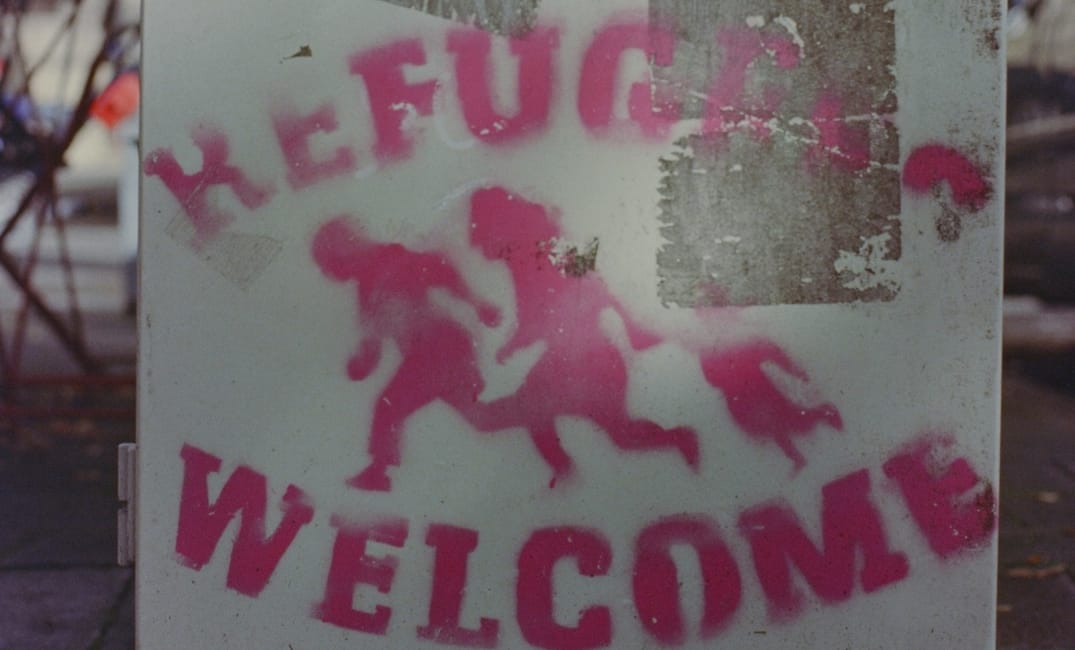Ashley Tan
In the early light of dawn, bright orange life vests dotted the horizon in a small and dangerously lopsided dinghy. One of these life vests later washes up on the shore, hugging the body of a young migrant who did not know how to swim.
Drownings in the Channel have become all too familiar as a tragedy of the ongoing migrant crisis. Despite these casualties, the migration narrative remains firmly fixed on what is now trademark rhetoric of the anti-immigration brigade: an ‘invasion’, or ‘swarm’ of nebulously-classed ‘dangerous’, ‘criminal’, ‘illegal’ individuals who attempt to cross the borders. A lot has been said about asylum seekers in a divisive political landscape, and these are just some of the many anti-immigrant myths that plague the conversation.
The recent appointment of a “Clandestine Channel Threat Commander” by Home Secretary Priti Patel is proof these such beliefs are being reflected in government policy. This militarised reinforcement of the Channel officially treats asylum seekers strictly as a security risk, not to as someone seeking asylum: a person so desperate to flee such unspeakable persecution and famine that they accept a high risk of death for a chance at a peaceful life.
For those lucky enough to survive the treacherous journey, it is devastatingly ironic that their worries do not end on British shores, but rather only just begin. Once they arrive and make their claim, asylum seekers face years of poverty, in stark contrast to a widely spread yet unproven myth that they flock to the UK to become so-called ‘benefits scroungers’. Due to government attempts to explicitly differentiate refugee status and economic migration, immigration policy dictates that asylum seekers are barred from seeking work while their claims are being processed. And while it is true that asylum seekers have to survive solely on benefits, The Guardian estimates that the weekly asylum seeker allowance of £37.75 works out to just over half the amount paid out as jobseeker’s allowance, making a life of luxury quite implausible, after paying for food, bills, toiletries, mobile phone expenses, and costs associated with the asylums claims process, such as travel to a processing centre.
It comes as tragic but ultimately unsurprising news that poverty and associated living conditions have led to the mental health of many asylum seekers rapidly declining. With the pandemic locking most people indoors, social isolation and the uncertainty of their immigration predicaments have only magnified what are dire living conditions. Dispatches from asylum seekers reveal prison-like conditions at immigration processing centres, and longer term accommodation lacking basic features such as windows and fresh air. Alongside a continual fear of arrest or deportation, heightened by hostile environment policies, these conditions have been ripe in creating crippling anxiety and desperation in asylum seekers that have led to devastating measures.
It speaks of such systemic failure of UK immigration and housing policy that asylum seekers die just as they begin living in the very country they believed would allow them to reclaim their lives. On 6 August, Yemeni asylum seeker Abdullah Ahmed Abdullah Alhabib, 41, was found dead in a Manchester hotel shortly after enduring the months-long journey to get to the UK.
In another high profile case in Glasgow, an asylum seeker who previously complained about his treatment in the accommodation stabbed six people in the facility. These tragedies were arguably avoidable – residents had reported the latter asylum seeker’s behaviour as erratic, and he had sought redress to his complaints – had there been more safeguarding in place and a proper assessment of individual vulnerabilities and needs. Sadly, appalling living conditions are hardly a new occurrence – asylum seekers have routinely protested against their accommodation situations around the UK.
Last week’s protest in Derby showed a lack of personal protective equipment and ability to register with a GP for asylum seekers, compounded by racist graffiti sprayed on their building, all of which were denied by their private accommodation provider G4S as untrue. Without much access to legal aid and as a result of their precarious immigration status, there is little that asylum seekers can pursue to improve their situation.
So: is the UK the asylum that political refugees believe it to be? It claims to be a place of justice, freedom, and equality, but currently, the UK immigration system proves otherwise, appearing woefully inept in treating asylum seekers humanely, and causing lives to be lost in the process.
Still, situations such as the quick housing of people in response to the pandemic has shown that the UK government has all the infrastructure and financial capability to change that. As a country with a history of colonisation, alongside its European counterparts, the UK is certainly complicit in aspects of this migration crisis and displacement of people worldwide.
Against this backdrop, it must acknowledge that its current attempts to opt into anti-migrant rhetoric dangerously dehumanises people who look to the UK simply as a place they can leave the persecution that they have faced in their countries of origin.
Thanks for reading our article! We know young people’s opinions matter and really appreciate everyone who reads us.
Give us a follow on Instagram, Twitter and Facebook to stay up to date with what young people think.

